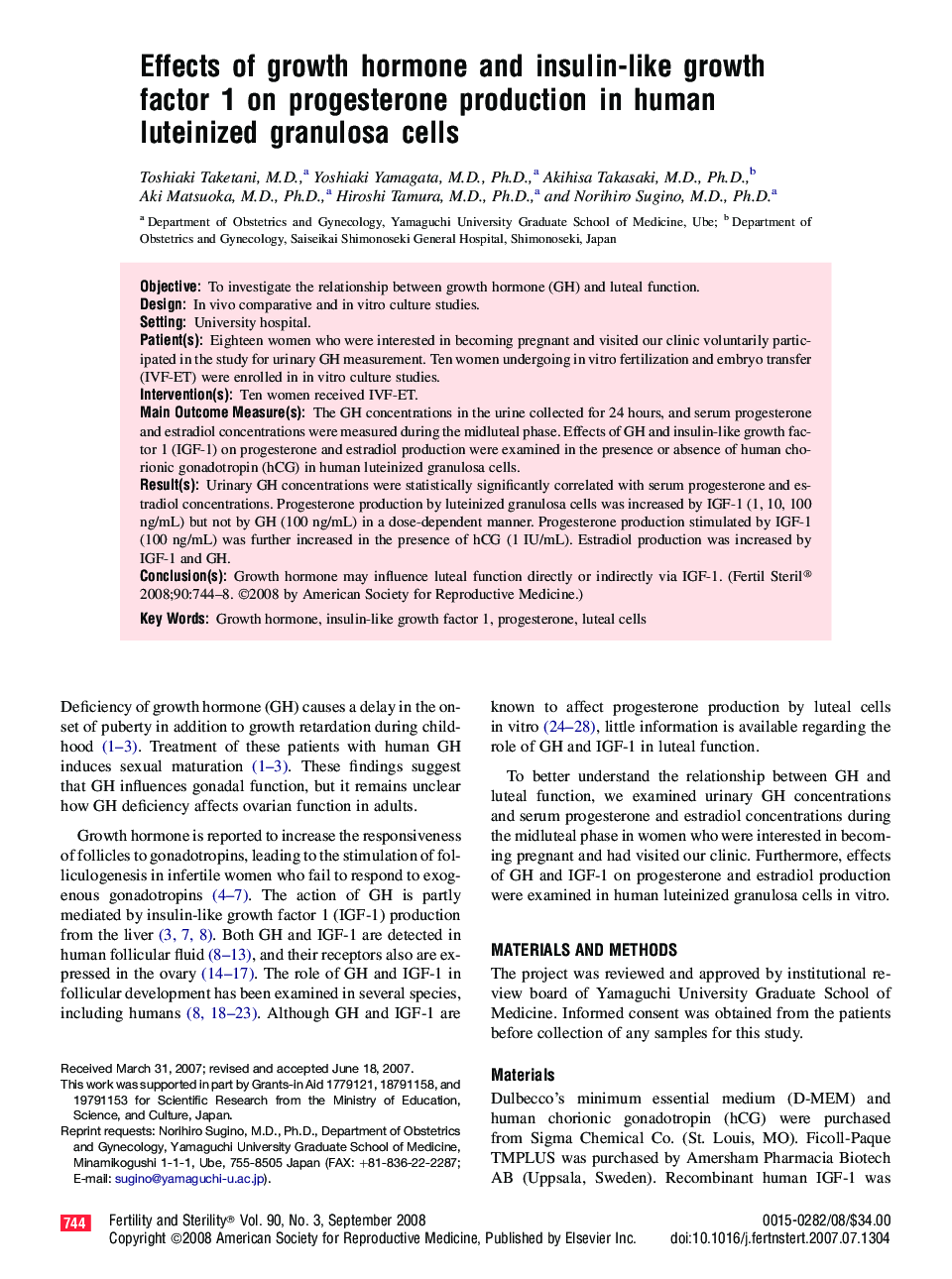| Article ID | Journal | Published Year | Pages | File Type |
|---|---|---|---|---|
| 3939835 | Fertility and Sterility | 2008 | 5 Pages |
ObjectiveTo investigate the relationship between growth hormone (GH) and luteal function.DesignIn vivo comparative and in vitro culture studies.SettingUniversity hospital.Patient(s)Eighteen women who were interested in becoming pregnant and visited our clinic voluntarily participated in the study for urinary GH measurement. Ten women undergoing in vitro fertilization and embryo transfer (IVF-ET) were enrolled in in vitro culture studies.Intervention(s)Ten women received IVF-ET.Main Outcome Measure(s)The GH concentrations in the urine collected for 24 hours, and serum progesterone and estradiol concentrations were measured during the midluteal phase. Effects of GH and insulin-like growth factor 1 (IGF-1) on progesterone and estradiol production were examined in the presence or absence of human chorionic gonadotropin (hCG) in human luteinized granulosa cells.Result(s)Urinary GH concentrations were statistically significantly correlated with serum progesterone and estradiol concentrations. Progesterone production by luteinized granulosa cells was increased by IGF-1 (1, 10, 100 ng/mL) but not by GH (100 ng/mL) in a dose-dependent manner. Progesterone production stimulated by IGF-1 (100 ng/mL) was further increased in the presence of hCG (1 IU/mL). Estradiol production was increased by IGF-1 and GH.Conclusion(s)Growth hormone may influence luteal function directly or indirectly via IGF-1.
